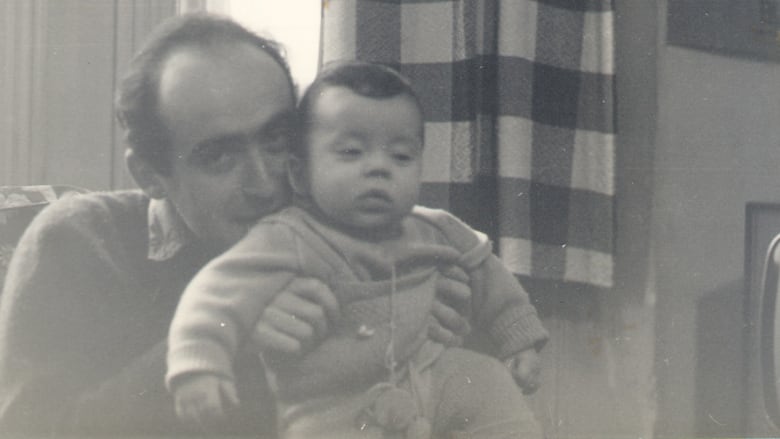Brazil wants to re-write school textbooks to downplay a dictatorship that killed hundreds
Ivo Herzog's father was 1 of more than 400 people who were killed or disappeared during Brazil's military rule

For Ivo Herzog, a proposal from Brazil's ministry of education to re-write history textbooks echoes the world's darkest hours — as well as his own family history.
Brazil's education minister Ricardo Velez Rodriguez left his post Monday, days after he announced school textbooks would be adjusted to describe the country's 1964 military coup and subsequent 21-year dictatorship as a "democratic regime of force."
"I think it's a big crime," Herzog told As It Happens host Carol Off on Friday. "When I read that news, I remembered what was done in Germany in the beginning of the Nazi regime when they were burning books and trying to build a new reality ... to justify what happened a bit later during the Second World War."
It's not yet clear how Rodriguez's ouster will affect the new curriculum, which reflects the views of President Jair Bolsonaro's administration that the military coup was necessary to guard against the communist threat at the time.
Personal history
Herzog father, Vladimir Herzog, fled his native Yugoslavia as a child to escape Nazi persecution.
In Brazil, he became a prominent journalist and eventually joined the country's Communist party, one of the many underground organizations opposed to the dictatorial regime.
In October 1975, the government's secret police arrested several journalists in an attempt to rout out radicals who were trying to restore democracy.
His father was caught up in the sweep, turning himself in to authorities on Oct. 25.
"And just a few hours later, four or five hours later, he was dead due to torture," Herzog said.
The government claimed Herzog's father took his own life, he said, but the "violence on his body was seen by the rabbi," who ordered him be buried in the centre of the cemetery, and not the outskirts as would be Jewish tradition for death by suicide.
A turning point
Vladimir Herzog was among more than 400 people who disappeared or were killed during that time period. Thousands of others were detained and tortured until democracy was restored in 1985.
His death is the milestone in Brazil for the beginning of the decline of the dictatorship," Herzog said.
"It became the most notorious case of assassination during that period because of who my father was and also because of the reaction of the population."
Many of the gruesome details were revealed in a 2014 truth commission report. Calls were made for perpetrators to be held to account and the report was billed at the time as a historic step forward for a country that had long shied away from its ugly past.
- AS IT HAPPENS: Uncontacted tribes face 'extinction and genocide' under Bolsonaro: advocates
- AS IT HAPPENS: Gay councillor takes over for a congressman who fled Brazil in fear of his life
"The history about that period is very well documented," Herzog said. "We know what happened in '64. The books are right."
But Herzog says the truth is under threat unless efforts are made to resist what he says is the current government's shift toward revisionist history.
"Here in Brazil, they are trying to bury the past and put together their own history," he said. "There is a very famous phrase: we need to know about our past so we don't repeat the mistakes of our past."
Herzog said he hopes ongoing calls for an investigation into the deaths and disappearances of the dictatorship and recent efforts to prosecute those responsible will make it more difficult for the current government to deny the country's bloody past.
So far, no one has been prosecuted in connection with the dictatorship.
"Until we investigate that, there will be opportunity for people like Bolsonaro to come and say that what happened in that period wasn't a dictatorship, a violent dictatorship that tortured and killed people," he said.
'A very small group that is in power'
The former education minister's comments came just days after Bolsonaro's right-wing government officially commemorated the anniversary of the 1964 coup.
Despite the official line, the move was met with protest in Sao Paulo.

"How can you imagine celebrating a movement that was responsible for the assassination of more than 400 people? How can you imagine celebrating assassination? What's that?" he said.
"I thought we were human beings. Human beings don't kill."
For Herzog, the country's education system is failing to properly inform citizens about the country's past, which paves the way for Bolsonaro's support and his efforts to re-write history.
"This is an idea of Bolsonaro and a very small group that is in power right now. But they are in power and they were elected ... so we do have to respect the vote that elected these groups," Herzog said.
"Nevertheless, we don't have to be quiet. We're going to speak — and loud."
Written by Sarah-Joyce Battersby with files from The Associated Press. Interview with Ivo Herzog produced by Allie Jaynes.